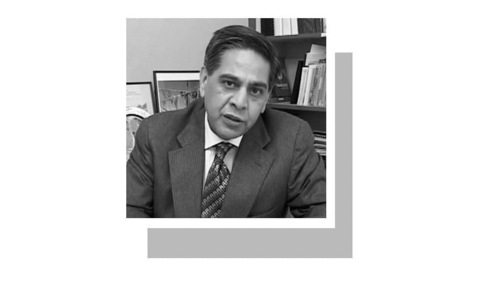ISLAMABAD: The number of persons under detention at internment centres across the country is still shrouded in mystery. On paper they may not be more than 750, but the authorities concerned acknowledge in private that the figure stands at 1,577.
There is a need to regularise the detention by accounting for the 827 other persons by openly conceding their captivity instead of holding them secretly, said a highly placed source.
Many of them are either in the 27 internment centres established under the Action (in Aid of Civil Power) Regulations 2011 (21 in the federally administered tribal areas and six in provincially administered tribal areas) or in the 102 jails in different cities.
A disclosure of their identity will always help in taking care about the health and safety of the interned persons. They cited as example one camp at Lakki Marwat, which saw 83 families visiting and meeting such persons over the past five months, the source said.
Confusion about the number of enforced disappearances was also shared by rights activist Asma Jehangir, but she blamed the Supreme Court for it. The court should have encouraged lawyers, instead of complainants, to hear the cases because a number of them contain incomplete or unverified data, she contended.
Asma Jehangir recalled that the first-ever petition by the Human Rights Commission of Pakistan (HRCP) on the issue of missing persons was filed way back in 2007. It highlighted around 245 cases, which the apex court later referred to the Commission of Inquiry on Enforced Disappearances (CIED).
A review petition against the decision of referring the HRCP case to the CIED is pending before the apex court, Asma Jehangir told Dawn.
The commission is seized with over eight hundred cases whereas the federal task force had concluded that the total, including cases from Balochistan, stood at 850.
The Supreme Court recently accepted that 721 cases were pending with it and the high courts.
The plight of the interned recently came to light when the apex court took up the matter of Yaseen Shah, who went missing after a joint action by police and the armed forces against terrorists in 2010. His case was brought before the Supreme Court by his elder brother Mohabbat Shah, a resident of village Ghala, Tehsil Katlang of Mardan district (Khyber Pakhtunkhwa).
The case resulted in high drama when seven already freed persons, out of 35 missing, were produced before the apex court to comply with court orders, but a Supreme Court bench was not amused. The bench, headed by former chief justice Iftikhar Muhammad Chaudhry, handed down a damning judgment on Dec 10.
The court described the practice of enforced disappearances as a crime against humanity and also ruled in another judgment issued the same day about seven Adyala missing persons that no intelligence or security agency, including the Inter Services Intelligence (ISI), Military Intelligence (MI), Intelligence Bureau (IB) and the Frontier Corps, could detain any person forcibly in a secret manner for a long period without sharing information about his whereabouts with his relatives.
“It is only because of an absence of accountability,” emphasised the source when asked why people were still being kept in detention secretly.
His opinion was shared by Raja Muhammad Irshad, who represented the intelligence agencies before the Supreme Court in a number of cases. He argued that although the action in aid of civil power regulations was quite comprehensive, there existed no law to bind the authorities to disclose the identity of a detainee to his family or to the public. An order of the court was the only exception.
But Asma Jehangir was critical of the Dec 10 verdict too, describing it as “a judgment written in fury”. The defence ministry is considering filing a review petition against the verdict.
“I have reservations over the verdict since terms like ‘crime against humanity’ have been used without an understanding of repercussions,” she explained.
HOPES LOST: On the other hand, Amina Masood Janjua, chairperson of the Defence of Human Rights (DHR), insisted that she would continue arranging camps next year to highlight the plight of affected families since she had little hope left of getting justice from the Supreme Court or the parliament.
Meanwhile, the source admitted that unless recommendations finalised by the federal task force were translated into a law, the issue of enforced disappearances would not end.
He recalled that the recommendations in the shape of a draft bill had already been submitted to Prime Minister Nawaz Sharif, who had formed a high-level committee headed by Defence Minister Khawaja Muhammad Asif. Other members are the attorney general and the secretaries of defence, interior and law. The committee is expected to finalise a law on the missing soon, he added.













































Dear visitor, the comments section is undergoing an overhaul and will return soon.